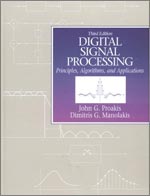 Title: Digital Signal Processing: Principles, Algorithms and Applications (+solutions manual)
Title: Digital Signal Processing: Principles, Algorithms and Applications (+solutions manual)| Link type | Link | Password |
|---|---|---|
| Book Mirror | http://mihd.net/g64rvk | books_for_all |
| Solutions Mirror | http://mihd.net/qawrg3 | books_for_all |
| Book | http://uploading.com/files/3191m1c4/0133737624DigitalProcessing.rar/ | |
| Solutions | http://uploading.com/files/53a9md2f/0133737624DiglProSolutions.rar/ |